Creating an inclusive volunteer philosophy
On 12 October 2023, the Make Your Mark Volunteer Organisers Network heard from HMS Unicorn about developing the philosophy behind their “WaveMakers” volunteering programme.
Our speaker gave the following tips for developing an inclusive volunteer philosophy:
Review your current volunteer programme
Take a look at your current volunteer offer and analyse its strengths and weaknesses. Be sure to speak to other staff at the organisation for their perspectives, as well as consult any existing volunteers through a survey or focus group.
Review any current data that you have about your volunteer programme, and consider if you need to collect any additional data to better inform an inclusive volunteer strategy. Ideally, you’d collect data on volunteers’ backgrounds to track if your programme is attracting a wide range of people, as well as collect feedback from volunteers about the quality of their experience.
Partner with local organisations
Partnering with other local organisations gives you a greater insight into and connection with local communities. These organisations can also promote your volunteer opportunities to their members and audiences, and provide feedback on the inclusiveness of your opportunities. When reaching out about a potential partnership, be sure to highlight the benefits of volunteering for their clients, such as meeting new people, developing skills, building confidence and more.
Develop clear volunteer role descriptions and a thorough induction
Writing up clear volunteer role descriptions enables people to accurately understand what is expected of them. Role descriptions should be clear on what tasks are to be undertaken, and when and where the volunteering will take place, including any information on accessibility and support offered.
Providing all volunteers with a thorough induction ensures that they have all of the key information needed to complete their tasks and be comfortable on-site. It should contain information on your organisation and staff, as well as where volunteers put their bags and coats, where to collect name badges, where the toilets and kitchens are, etc. For some people, it may be their first time volunteering, so it is also helpful to be clear about whether people need permission before going to the toilet or kitchen, how they’re expected to dress and how they are expected to speak with visitors, staff and other volunteers.
Clear role descriptions and a thorough induction can also help to lessen any anxiety around volunteering and encourage people to take part.
Set boundaries around your role
It is important to maintain healthy boundaries with your volunteers. For some people, coming on-site to volunteer could be their only social interaction. You shouldn’t be their only support system, and may consider encouraging them to connect with other organisations that can better support them with some of the issues they might be facing, such as with mental health.
Boundaries around your time and capacity are also important. Be realistic about the number of volunteers that you can support, especially if volunteer management is one of many responsibilities you cover in your role. Your volunteering philosophy should focus on measuring the quality of volunteers’ experiences, rather than the sheer quantity of volunteers.
Organise regular reviews with volunteers
Hosting regular reviews with individual volunteers will help you understand how they’re progressing and developing. Asking questions like “what have you done that you’re really proud of?” can help boost volunteers’ confidence and give you an opportunity to personally recognise their efforts and show that they are a really important part of the team.
It’s important to set personalised outcomes for volunteers, depending on what they are hoping to get out of volunteering. Some people may be aiming to move on to further employment or education, whereas others may be volunteering to build their confidence or learn better time management. Celebrating individual volunteer journeys ensures that they have a quality experience.
Join Make Your Mark
Join 100+ volunteer-involving heritage organisations in Scotland who are working together to make heritage volunteering for all.

About the author
Make Your Mark
This is the make your mark author, can be used as a default.